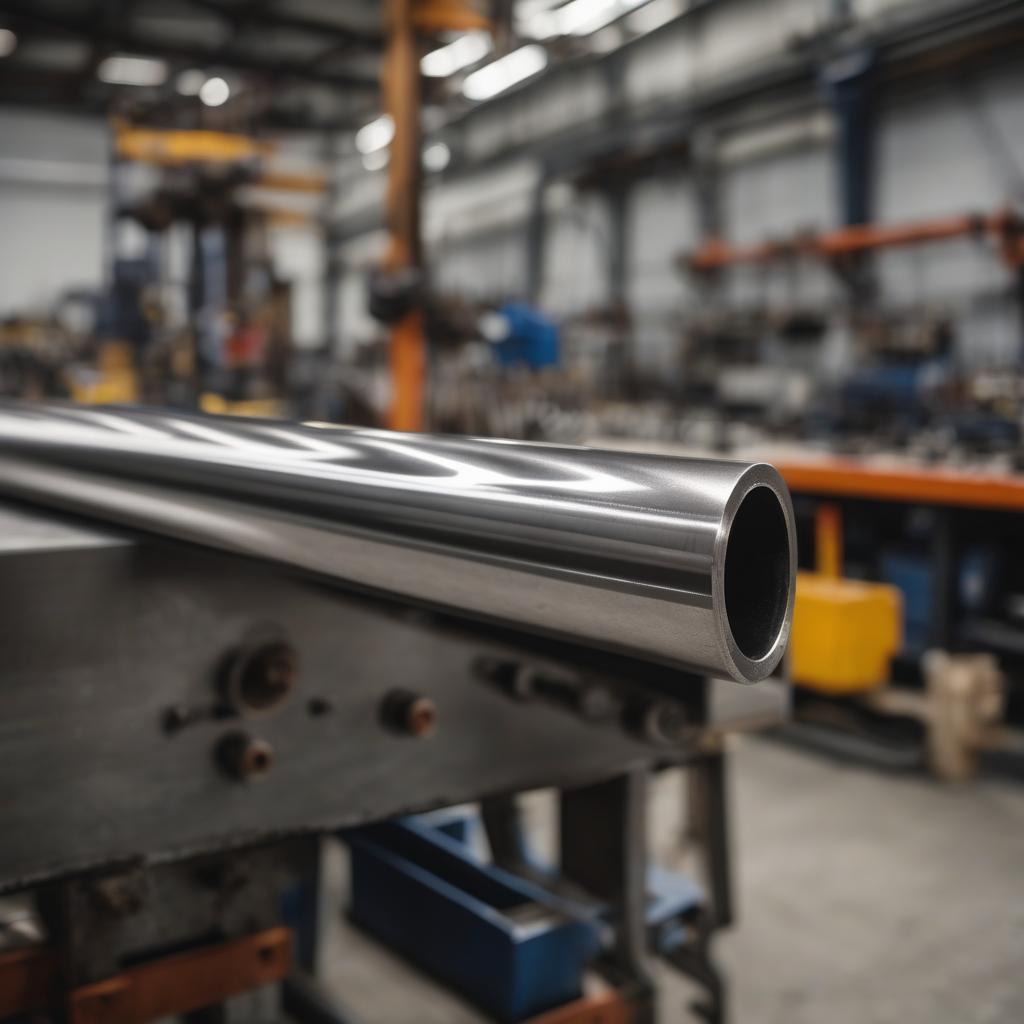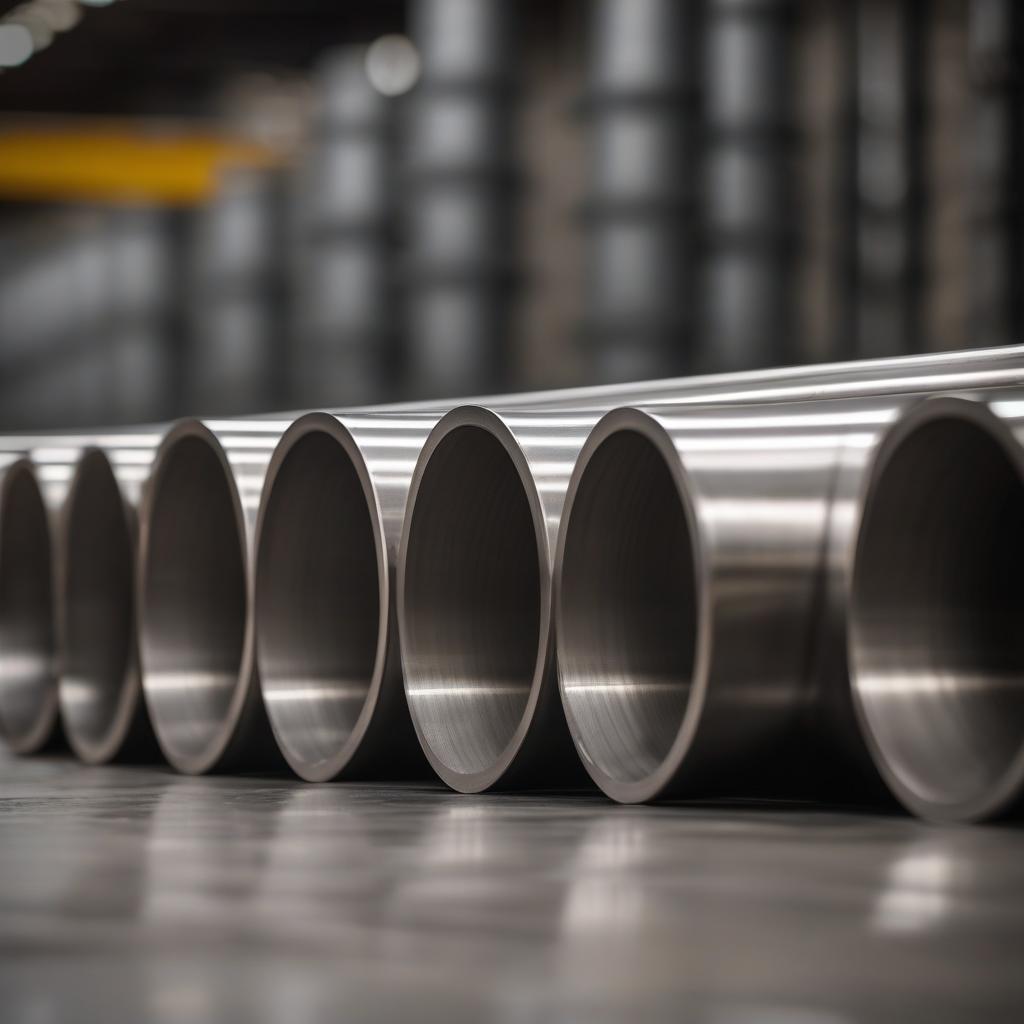Alloy seamless steel tube
Product Description
Alloy steel seamless pipes are indispensable in a variety of industrial settings, particularly those that demand high-temperature resilience. Renowned for their robustness, substantial strength, and capability to endure extreme conditions, these pipes are integral to industries such as power generation, chemical processing, and oil and gas. This product introduction will guide you through the critical specifications, dimensions, manufacturing processes, and applications of alloy steel seamless pipes, illustrating their significance in modern industrial practices.
Specifications and Standards
The remarkable performance of alloy steel seamless pipes is underpinned by adherence to stringent international standards. These standards ensure the pipes offer unparalleled quality, reliability, and safety in demanding environments.
-
ASTM A335: This specification encompasses seamless ferritic alloy-steel pipes designed for high-temperature service. Popular grades such as P1, P11, P12, P22, P5, P9, and P91 are widely used. These pipes excel in applications involving bending, flanging, and fusion welding due to their enhanced ductility and toughness.
-
JIS Standards (G3458, G3462, G3467): Originating from Japan, these standards cover alloy steel pipes appropriate for high-temperature service, along with boiler and heat exchange tubes. The STPA and STBA series meet rigorous demands of high-pressure and high-temperature applications in various energy systems.
-
DIN 17175-79: This German standard applies to welded steel tubes optimized for high-temperature settings, often employed in environments necessitating sustained thermal endurance.
Dimensions
Alloy steel seamless pipes are available in a diverse range of dimensions to meet specific industrial needs:
- Outside Diameter: Ranges from 20 mm to 1066.8 mm, accommodating various flow requirements.
- Wall Thickness: Varies from 1 mm to 80 mm, allowing customized solutions to handle distinct pressure and thermal loads.
A335 and A333 Pipe Specifications
-
A335 Pipes: Available in sizes from NPS 1/4" to 24", these pipes cater to severe high-temperature conditions. Their schedules, ranging from 40 to 160 and including STD, XH, and XXH, provide options for varying wall thicknesses, ensuring their adaptability and strength.
-
A333 Pipes: Engineered for low-temperature environments, they are available in sizes NPS 1/4" to 24". This specification includes ferritic steel grades designed to mitigate low-temperature impacts, enhancing safety and efficiency across applications.
Manufacturing and Heat Treatment
The production of alloy steel seamless pipes employs advanced methods like hot finishing or cold drawing to achieve the required specifications. ASTM A333 pipes particularly undergo meticulous heat treatment to optimize their structure and performance:
- Normalizing: Adjusts the microstructure to enhance toughness.
- Quenching and Tempering: Boosts strength and ductility, essential for high-pressure conditions.
- Double Normalized and Tempered: Offers a uniform microstructure and enhanced performance, tailored for the most demanding applications.
Boiler and Mechanical Tubing
In boiler and mechanical applications, alloy steel seamless pipes are critical for constructing components like waterwalls, economizers, and superheaters:
-
SA213 / A213: Encompasses grades such as T-5, T-9, T-11, T-22, and T-91, offering excellent high-pressure and high-temperature properties, essential for power generation and petrochemical applications.
-
SA210 / A210: Primarily utilized in lower pressure setups, yet they maintain robust performance, particularly in Grade A1 format.
For broader mechanical uses, ASTM A519 is frequently employed in grades 1026, 4130, and 4140. These cater to systems transporting fluids such as steam, water, and gas under significant pressure and temperature, ensuring operational integrity and safety.
Conclusion
Alloy steel seamless pipes are pivotal in ensuring efficiency and safety in high-temperature and high-pressure industrial applications. Their rigorous compliance with international standards, a wide array of dimensions, and sophisticated manufacturing processes enable them to meet the stringent requirements of modern industries. By selecting the appropriate specifications and materials, industries can optimize performance and longevity in their piping systems, leading to improved operational outcomes and safety.
Product Image


